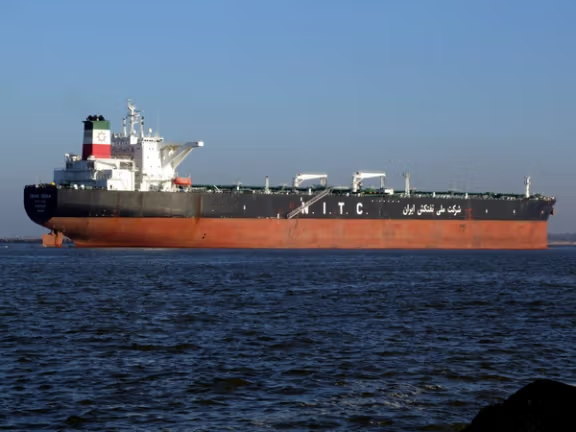The move aims to make it harder for Iran to sell oil, by far the largest source of foreign currency for the country's ailing economy.
The announcement comes "in response to Iran’s October 1 attack on Israel, its second direct attack on Israel this year", the Treasury’s Office of Foreign Assets Control (OFAC) said.
“Today’s sanctions target Iranian efforts to channel revenues from its energy industry to finance deadly and disruptive activity - including development of its nuclear program, the proliferation of ballistic missiles and unmanned aerial vehicles, and support to regional terrorist proxies,” US Secretary of the Treasury Janet Yellen said in a statement on Friday.
The new sanctions target 10 entities and 17 vessels involved in shipping Iran’s sanctioned oil and petrochemical products, the treasury statement said.
The US State Department also sanctioned six entities and six vessels engaged in the transportation and sale of Iranian oil, the statement added.
A series of US-led sanctions on Iranian oil over the past decade have forced Iran’s government to resort to a network of tankers, often referred to as a shadow fleet, to evade restrictions and continue its oil trade.
The US treasury has identified and sanctioned a number of these tankers as well as their operating companies, many of which are registered in the United Arab Emirates.
Iran exported more than $70 billion worth of oil after the 2015 nuclear deal, according to the data released by the Organization of the Petroleum Exporting Countries (OPEC). This fell to less than $10 billion in 2020, following a unilateral US withdrawal from the nuclear agreement and Donald Trump’s so-called maximum pressure campaign.
The figure rose again to just above $40 billion in 2023, in large part due to a myriad of smaller Chinese refineries purchasing Iranian oil masked as originating from other countries.
Due to heavily discounted sale prices and substantial expenses involved in using shell companies and the shadow fleet, little in the way of profit materializes in the coffers of Iran’s government.








